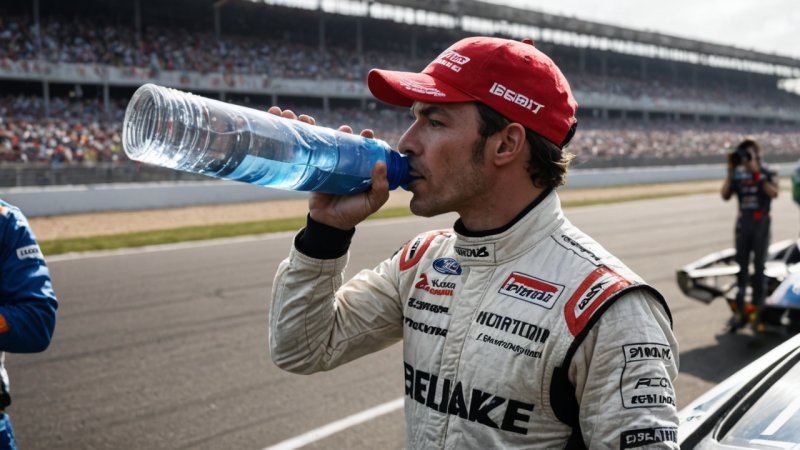In the high-octane world of motorsports, every fraction of a second counts, and athletes must push their physical and mental limits to gain an edge. While technology and strategy often dominate discussions, one fundamental factor that can significantly impact performance is hydration. Proper hydration not only enhances physical capabilities but also aids in cognitive function, reaction times, and overall endurance. Below, we explore the vital role of hydration in motorsport performance and provide essential tips for drivers to maintain optimal hydration levels throughout their racing careers.
1. The Science Behind Hydration
Hydration affects the body in numerous ways, particularly during intense physical exertion. When drivers are on the track, their bodies can lose substantial amounts of fluid due to sweat and heat exposure. This loss can lead to dehydration, which impairs both physical and mental performance. Understanding how hydration works is crucial for drivers seeking to optimize their performance.
- Fluid Balance: The body regulates its temperature through sweat. When fluids are lost, the body may struggle to maintain a stable temperature, leading to fatigue.
- Cognitive Function: Dehydration can affect concentration and decision-making, which are critical in high-speed environments. Even mild dehydration can impair cognitive abilities.
- Physical Performance: Studies suggest that a mere 2% loss of body weight due to dehydration can lead to a decline in performance, affecting strength, power, and endurance.
2. Recognizing the Signs of Dehydration
Drivers must be able to identify the early signs of dehydration to address the issue promptly. Recognizing these signs can be the difference between winning and losing a race.
- Thirst: A natural indicator that your body needs more fluids.
- Dark Urine: Darker urine color often signifies dehydration, while pale yellow indicates proper hydration.
- Fatigue: An unusual drop in energy levels during a race may point to dehydration.
- Headaches: Frequent headaches can signal that the body requires more fluids.
3. Hydration Strategies for Drivers
To maintain optimal hydration levels, drivers should adopt effective strategies that ensure they are adequately hydrated before, during, and after races.
- Pre-Race Hydration: Begin hydrating well before race day. Aim for at least 2-3 liters of water in the days leading up to the event.
- Electrolyte Balance: Incorporate drinks containing electrolytes to prevent imbalances due to sweating. This is particularly important in hotter environments.
- During the Race: Use hydration packs or water bottles in the car to sip fluids during caution laps or breaks in the race.
- Post-Race Recovery: Rehydrate after a race with water and electrolyte-rich drinks to replenish lost fluids and support recovery.
4. The Role of Technology in Hydration
Advancements in technology have introduced innovative ways for drivers to monitor and manage their hydration levels effectively.
- Wearable Hydration Monitors: Devices that track hydration levels through sweat analysis can provide real-time feedback to drivers.
- Smart Water Bottles: Some water bottles offer built-in reminders for drivers to drink at regular intervals, ensuring consistent hydration throughout the race.
- Mobile Apps: There are apps available that help athletes track their fluid intake and calculate hydration needs based on activity levels and environmental conditions.
5. Hydration and Performance: Real-World Examples
Understanding the importance of hydration through real-world examples can motivate drivers to prioritize their fluid intake. Many professional racing teams have recognized the impact of hydration on performance.
- Formula 1 Teams: F1 teams often employ hydration experts to ensure their drivers are optimally hydrated, incorporating drink systems directly into their helmets.
- NASCAR Drivers: NASCAR drivers have been known to use specially formulated hydration drinks to maintain their energy levels during races.
- Motocross Athletes: Many motocross riders emphasize hydration as a key part of their training regimen, enhancing their endurance and focus on the track.
In conclusion, hydration plays a pivotal role in the performance of motorsport athletes. Understanding the science behind hydration, recognizing the signs of dehydration, and implementing effective hydration strategies can significantly enhance both physical and cognitive abilities on the track. By leveraging technology to monitor hydration and learning from real-world examples, drivers can ensure they remain at their peak performance while staying safe. Prioritizing hydration is not just a recommendation; it is an essential aspect of a successful racing career.






